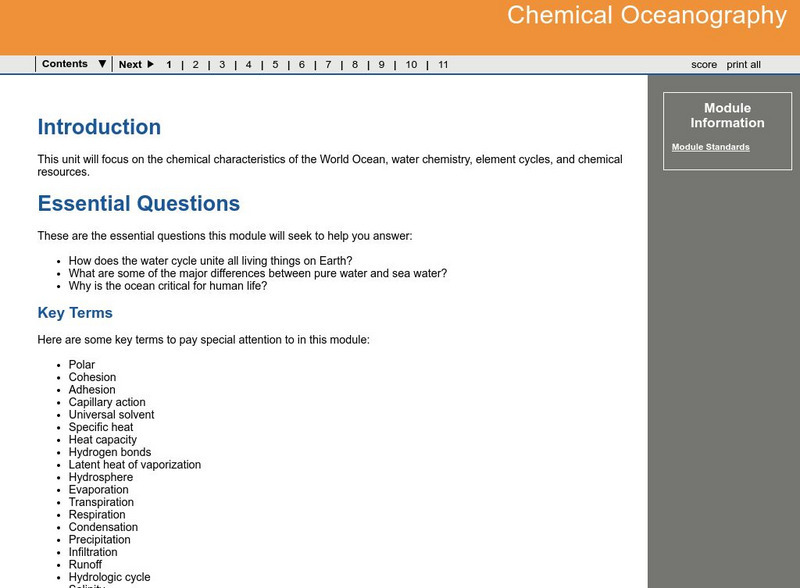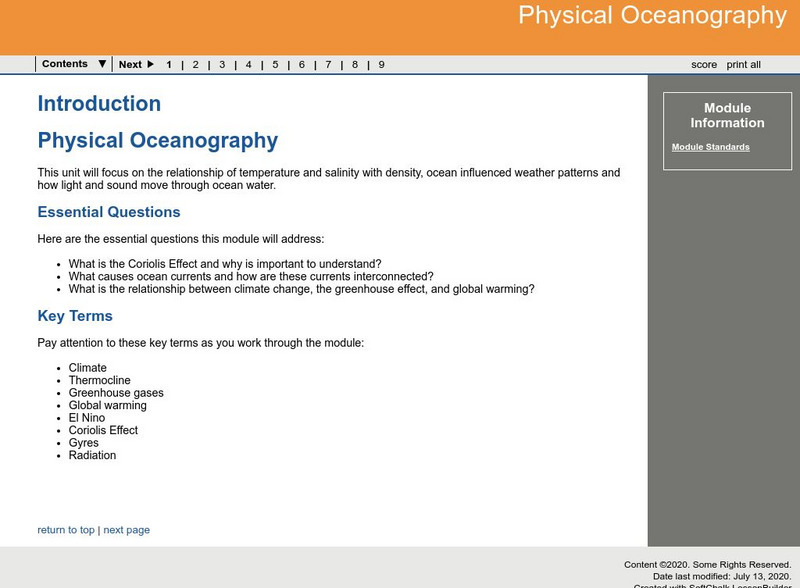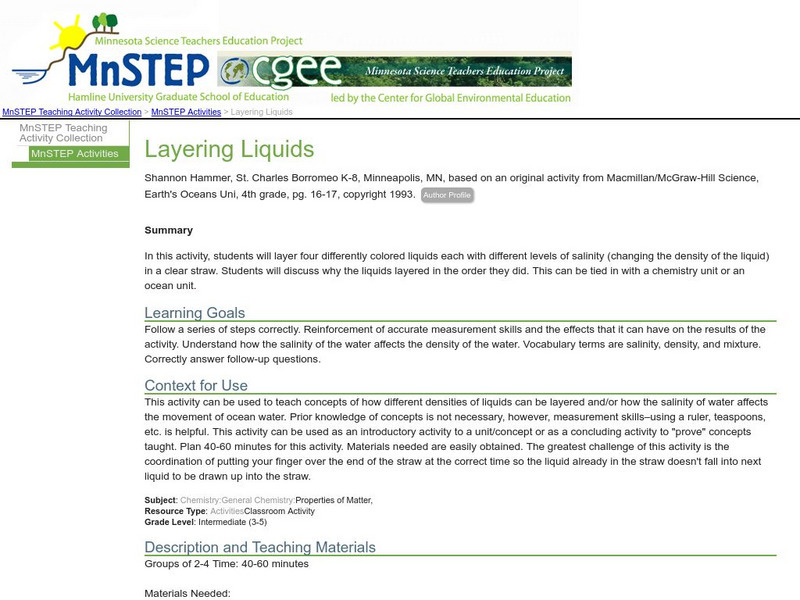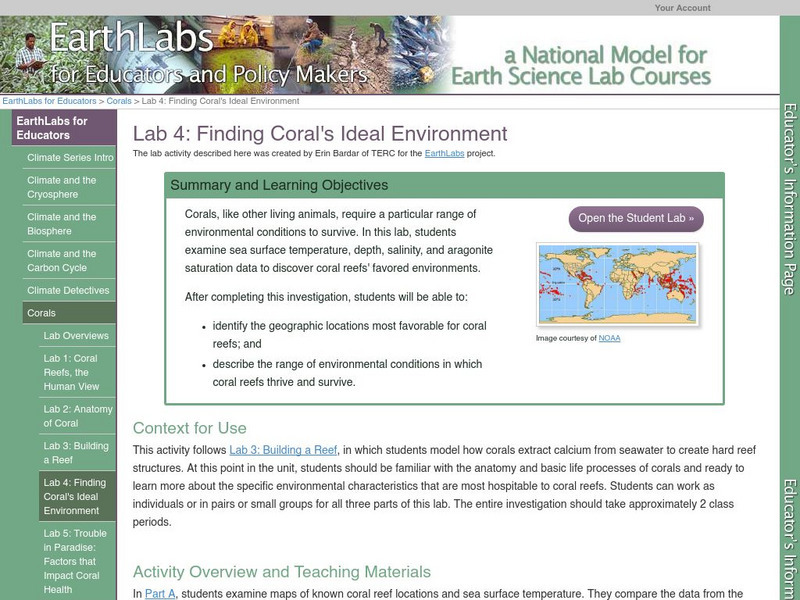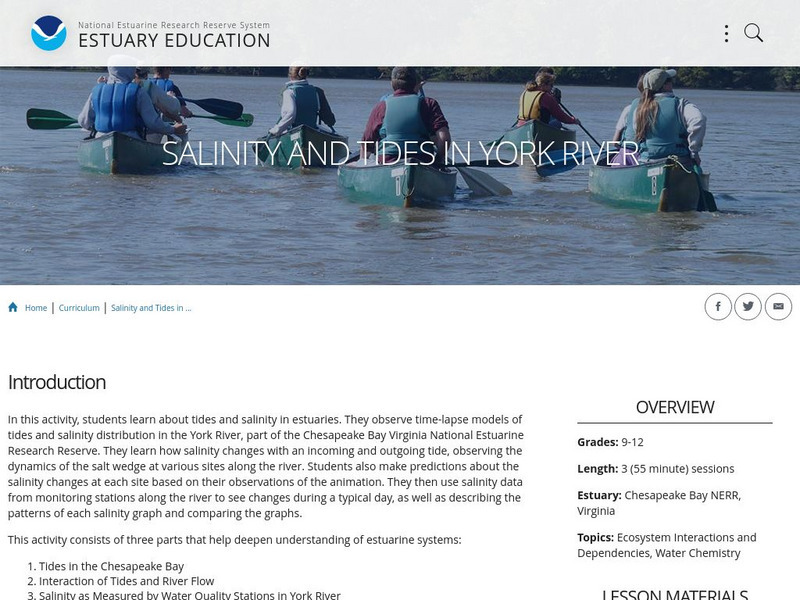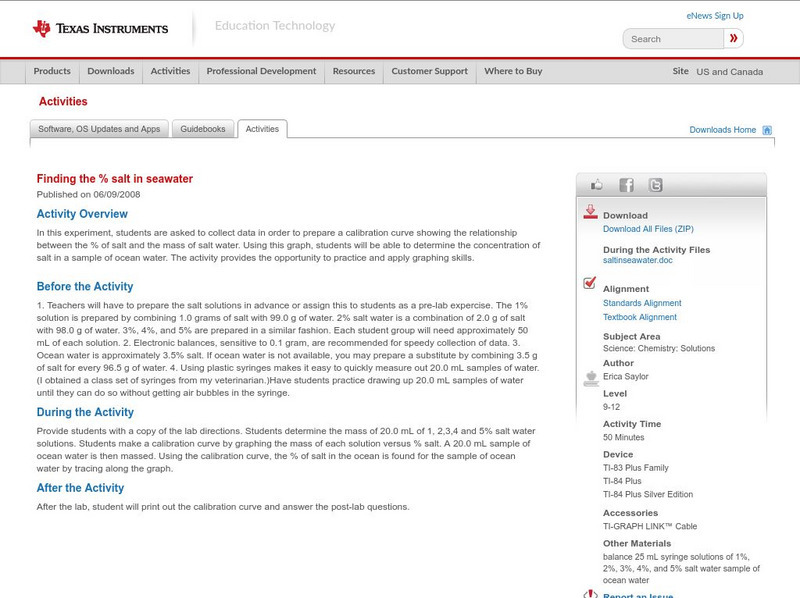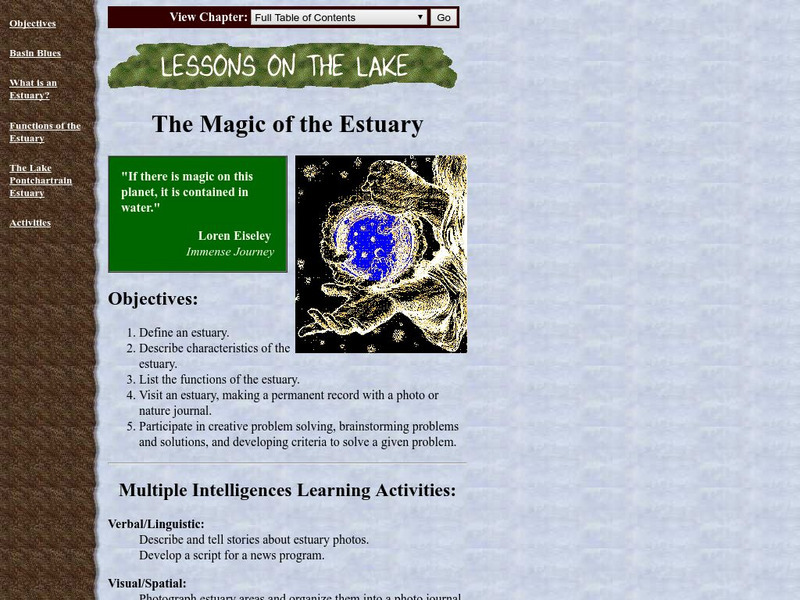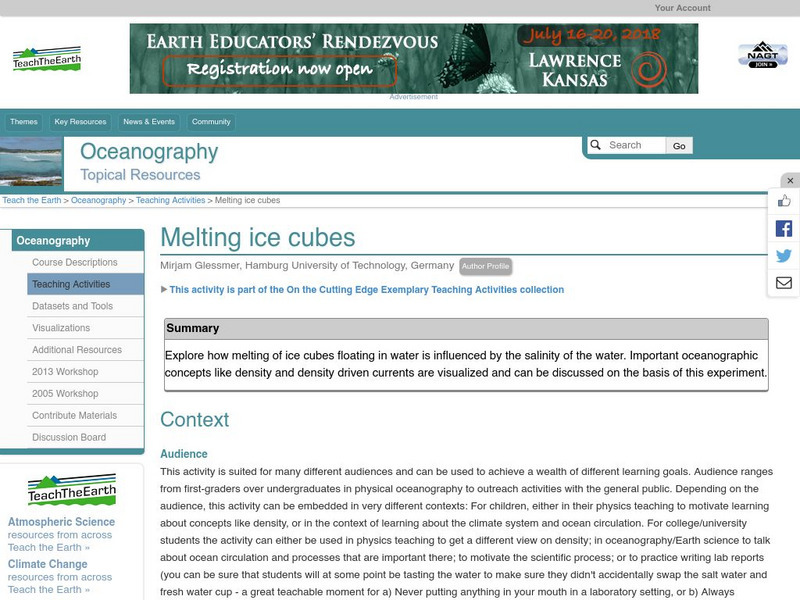Curated OER
Great Salt Lake
Third graders are introduced to the Great Salt Lake (GSL) environment and the various components of it. They make observations about algae and its environment and discuss why it is considered a living organism and various components of...
Curated OER
Learning Lesson: That Sinking Feeling
Students discover the origin of the Great Ocean Conveyor. They participate in a demonstration showing how salinity and temperature affect water density. They also examine the new sea ice that forms every winter.
Curated OER
We All Scream for Ice Cream
Learners make ice cream while experimenting with the freezing point of water. They experiment with different amounts of salt.
Curated OER
Ocean Microstructure
Students assess the ocean's microstructure by analyzing graphs created during tne Ronald H.Brown research cruise. they discuss at what depths various sea animals live and write paragraphs on data analysis from the graphs.
Curated OER
Water Density Boundaries
Students create observable layers in water that represent a separation based upon density differences. They model density boundaries using differences in temperature and salinity. They, in groups, perform a meaningful experiment...
NOAA
Noaa: More Than Salt in Salt Water [Pdf]
Realize that there is more in ocean water than just salt. Find out about the salinity of water and how changes in salinity may affect organisms living in the water.
Georgia Department of Education
Ga Virtual Learning: Chemical Oceanography
Students study the chemical characteristics of the World Ocean, water chemistry, element cycles, and chemical resources in this multi-media learning module.
Georgia Department of Education
Ga Virtual Learning: Physical Oceanography
A student learning module with a focus on the relationship of temperature and salinity with density, ocean-influenced weather patterns, and how light and sound move through ocean water.
Science Education Resource Center at Carleton College
Serc: Layering Liquids
A lab activity to show students how different densities of liquid layer on top of each other by using four different colored liquids that contain different levels of salinity. This activity can also be used in an ocean unit where...
Science Education Resource Center at Carleton College
Serc: Lab 4: Finding Coral's Ideal Environment
An investigation that is part of series of lab lessons where students study coral. In this particular experiment, students explore the optimal environmental conditions for coral to survive. Students will study temperature, water depth,...
TeachEngineering
Teach Engineering: One World Ocean
In this activity, students learn about ocean currents and the difference between salt and fresh water. They use colored ice cubes to see how cold and warm water mix and how this mixing causes currents. Also, students learn how surface...
Smithsonian Institution
National Museum of Natural History: Ocean Planet
Detailed website that was a companion to a 1995 traveling exhibit of the Smithsonian. Links to lesson plans and other educational materials are at the bottom of the page. Enter the exhibition to explore the world of the ocean.
NOAA
Noaa: Estuaries 101 Curriculum: Salinity and Tides in York River
In this learning activity, students explore tides and salinity from tidal freshwater to high salinity conditions along the York River estuary. They learn how salinity changes with an incoming and outgoing tide, observing the dynamics of...
BSCS Science Learning
Bscs: Restoring Oyster Reefs
After learning about the role of oysters in an estuary ecosystem and a population decline that oysters have faced over time from overharvesting and pollution, students work with data to determine where are ideal sites for restoring...
BSCS Science Learning
Bscs: Restoring Oyster Reefs
After learning about the role of oysters in an estuary ecosystem and a population decline that oysters have faced over time from overharvesting and pollution, students work with data to determine where are ideal sites for restoring...
BSCS Science Learning
Bscs: Asking and Answering Questions With Data
This inquiry is intended to provide students with practice developing investigable questions that need data, and specifically large datasets, to be answered. Click the teacher resources link for teaching guides and student handouts.
Other
Bscs: Asking and Answering Questions With Data
In this self-directed lesson, learners use graphs and maps of water quality to investigate relationships between variables to answer questions. A handout with everything the student needs to complete this lesson is available as a PDF or...
Texas Instruments
Texas Instruments: Finding the % Salt in Seawater
In this experiment, students are asked to collect data in order to prepare a calibration curve showing the relationship between the percentage of salt and the mass of salt water. Using this graph, students will be able to determine the...
Texas Instruments
Texas Instruments: Jason: How Dense Is Salt Water?
Disappearing Wetlands: Explore the relationship between mass, density, and salinity by measuring the mass and volume of four saltwater solutions of increasing strength.
US Geological Survey
Lake Pontchartrain Basin Foundation: The Magic of the Estuary
A collection of multiple intelligences learning activities about the characteristics and functions of an estuary. The site also includes basic information about an estuary along with facts about the Lake Pontchartrain estuary.
Science Education Resource Center at Carleton College
Serc: Melting Ice Cubes
This activity helps students understand how the melting of ice cubes floating in water is influenced by the salinity of the water. It will introduce the concept of density and density driven currents and provide practice in using the...
NASA
Nasa: Climate Kids: What Is Happening in the Ocean?
Find out why the oceans on Earth are so vital to the cycling of matter and energy through its spheres.
CK-12 Foundation
Ck 12: Earth Science: Seawater Chemistry
[Free Registration/Login may be required to access all resource tools.] Describes dissolved ions in seawater and their source.
CK-12 Foundation
Ck 12: Earth Science: Seawater Chemistry
[Free Registration/Login may be required to access all resource tools.] Describes the composition of seawater, including dissolved ions in seawater and their source.


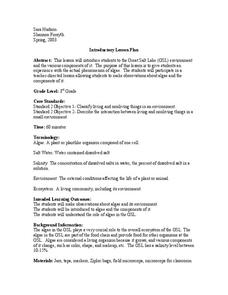

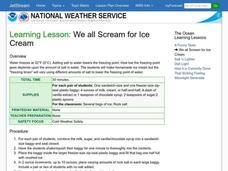
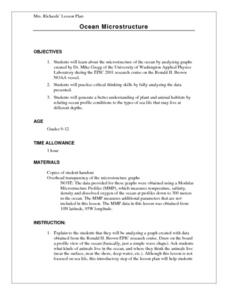
![Noaa: More Than Salt in Salt Water [Pdf] Activity Noaa: More Than Salt in Salt Water [Pdf] Activity](https://d15y2dacu3jp90.cloudfront.net/images/attachment_defaults/resource/large/FPO-knovation.png)
